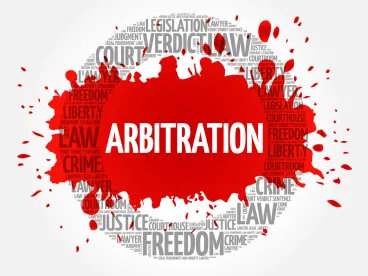In an unusual decision in an unusual case—a dispute between sovereigns—a U.S. appellate court recently vacated a domestic arbitration award on grounds other than those provided in Section 10 of the Federal Arbitration Act (“FAA”). In Citizen Potawatomi Nation v. Oklahoma, 881 F.3d 1226 (10th Cir. 2018), the appellate court vacated the award because the parties’ agreement to arbitrate was deemed unenforceable. While the outcome of that case is, in considerable part, fact-specific, it involves issues having broader applicability.
First, the decision in Citizen Potawatomi Nation purports to be driven by, but arguably is inconsistent with, the U.S. Supreme Court’s decision in Hall Street Associates v. Mattel, Inc., 552 U.S. 576, 581-84, 582 n.4 (2008), which held that FAA §§ 10 (vacatur) and 11 (modification) provide the exclusive grounds for vacating or modifying an arbitration award that is subject to the FAA. The arbitration clause at issue in Citizen Potawatomi Nation (which pre-dated Hall Street) called for a different standard of review by the district court; it provided that a federal court reviewing an arbitration award must apply a de novo review. Since de novo review is beyond the scope permitted by FAA §§10 and 11, the court of appeals held the contractual agreement to such review to be unenforceable. The appellate court then examined whether the de novo review requirement was severable from the arbitration clause, and determined that it was not. As a result, the court held that the entire arbitration clause was unenforceable and vacated the award. Thus, although the court purported to be bound by Hall Street, the court vacated the award on grounds not provided in FAA Sections 10 and 11.
Second, while the enforceability of an arbitration agreement would have been properly in issue if either party had sought to compel or to stay arbitration at the outset, neither made such an application. Instead, the parties arbitrated, and an award was issued. The matter to be decided by the court was whether to confirm or vacate the award, not whether the underlying arbitration agreement was enforceable.
The decision arguably is inconsistent with the FAA policy strongly favoring enforcement of arbitration agreements and awards. Section 2 of the FAA (9 U.S.C. §2) emphasizes that arbitration agreements “shall be valid, irrevocable, and enforceable, save upon such grounds as exist at law or in equity for the revocation of any contract.” However, in vacating the award, the appellate court did not address FAA Section 2 or grounds for revocation.
The action began by motion of Citizen Potawatomi Nation (“Nation”) to confirm the award. Nation argued that if the parties are not entitled to a de novo review as called for in the contract, the federal court must apply FAA Section 10(a) and deny Oklahoma’s motion to vacate the award. The District Court did just that, and confirmed the award. On appeal, Oklahoma argued that (a) the contractual de novo review clause is enforceable and should be applied, or (b) if that clause is not enforceable, then the entire arbitration agreement is unenforceable and the court should vacate the award. The Court of Appeals decided that the arbitration agreement was unenforceable and vacated the award.
The appellate court was influenced—at least in part—by the parties’ limited contractual waivers of sovereign immunity provided in their arbitration agreement. The court opined that the agreement’s language “makes clear that the parties’ waiver of sovereign immunity is only for purposes of the type of de novo review contemplated in … [the arbitration clause], not for suits to enforce an arbitration award under the limited review procedures set out in 9 U.S.C. §§ 9-11.” The court considered the de novo review provision to be inextricably entwined with and material to the agreement to arbitrate. It thereupon determined that “the [contractual] obligation to arbitrate is contingent on the availability of de novo review,” and it concluded that “the obligation to arbitrate set out in … [the parties’ agreement] is unenforceable.”
The court did not address the impact of its contract interpretation on the parties’ (i) waiver of sovereign immunity and (ii) limited consent to jurisdiction. The arbitration clause that the court held unenforceable also contained the parties’ waiver of sovereign immunity and consent to jurisdiction. If that entire arbitration clause is unenforceable, the court arguably should have concluded that the parties had not waived sovereign immunity and had not consented to the court’s jurisdiction. In that event, the court ought to have dismissed the case (or remanded it for dismissal) rather than vacating the arbitration award.
Nation has petitioned the U.S. Supreme Court for certiorari to overturn the 10th Circuit’s decision. If that decision is allowed to stand, it might easily be ignored as unique and inapplicable to mainstream companies because of its sovereign-immunity element. However, the decision should at least prompt clients to review their arbitration clauses in existing and future agreements to make sure that they do not purport to require an impermissible standard of judicial review.




 />i
/>i
